This month, we update you on developments in Colombia, Brazil, Venezuela, Ecuador, Paraguay, Suriname, and Argentina.
In Colombia, most of the country’s dissident FARC guerrillas declared a unilateral ceasefire: during the conflict over 1,700 people were forcibly displaced by non-state armed groups, and over a million individuals from ethnic minorities were displaced. In Brazil, general elections have taken place, with Lula polling 48% of the vote and Bolsonaro 43%. The United Nations Human Rights Council discussed the report of the latest Fact-Finding Mission on Venezuela, which was rejected by Venezuela’s government. The UN Subcommittee on Prevention of Torture visited Ecuador, in response to the continuing violence, riots, and deaths in their prisons. This year, Paraguay will feature the Write for Rights campaign. In Suriname, Parliament continues to work to recognize the rights of indigenous people. Lastly, Argentine doctor Miranda Ruiz was cleared of all charges after performing an abortion.
COLOMBIA
In a hopeful development, the commander of the majority of Colombia’s dissident FARC guerrillas declared a unilateral ceasefire ahead of a possible multilateral ceasefire that includes the security forces.
Colombia Reports explains how the new government’s peace proposals could seriously disrupt the cocaine trade if it were taken up by the 22-armed groups fighting over cocaine cultivation, laboratories and trade routes. As drug traffickers largely fund the ongoing war in Colombia and Colombia accounts for nearly half the world’s production of cocaine, this would be a stunning success for the government of Gustavo Petro. But there is a long way to go, as the new plan resembles in many ways the peace accord with the FARC and earlier agreements to disband the paramilitaries, which have not put an end to the fighting or illegal drug trafficking.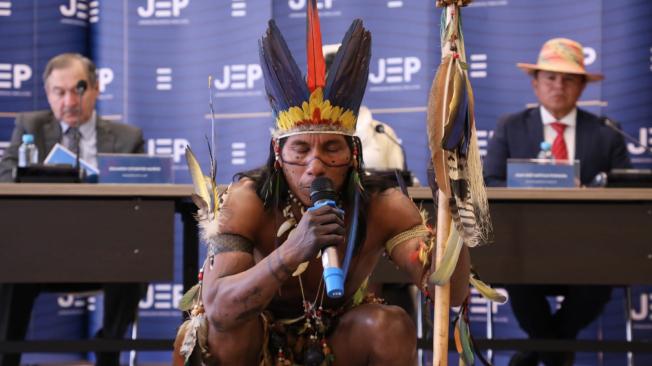
The Special Jurisdiction for Peace (JEP in Spanish) has identified 1.35 million victims from ethnic minorities, who have suffered from forced displacement during the 52-year conflict to 2016. The JEP has begun mega proceedings against landowners which are aimed to activate the process of reparations for these communities. This is also an opportunity for communities, who have never denounced their loss of land, to have their claims investigated.
The Internal Displacement Monitoring Centre notes that 1,791 people were forcibly displaced by non-state armed groups from three different regions of Colombia in the month of September 2022. In 2021, 134,000 people were internally displaced, of whom 41 per cent were African Colombians and indigenous people. Around 5,235,000 people were living in displacement as result of conflict and violence as of the end of the year.
According to Global Witness, of the 200 land and environmental rights defenders killed worldwide in 2021 thirty-three were killed in Colombia. ‘Land disputes are a driving force behind the killings of land and environmental defenders, and the peace agreement acknowledges the need to address matters such as forced land displacement, unequal land tenure and the substitution of illegal crops by alternative legal crops.’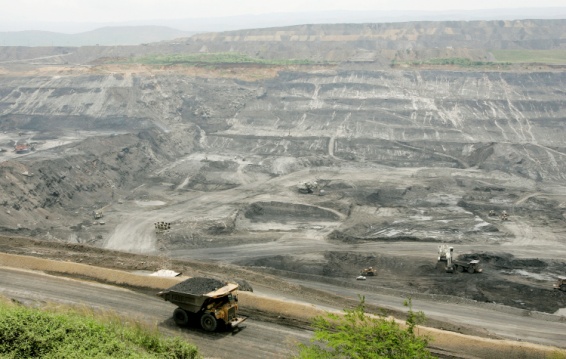
The London Mining Group and other international organizations are appealing to the highest court in Colombia over ongoing concerns of human rights violations at one of the largest open pit coal mines in the world. The organisations call on the court to uphold its earlier decision supporting the rights of Indigenous communities resisting the expansion of the Cerrejón mine, which is owned by London-listed Glencore.
BRAZIL
Ahead of the first round of elections on 2 October, Amnesty International calls on all candidates to speak positively on human rights. ‘President Bolsonaro has consistently used an anti-human rights discourse ever since the previous elections. It is even more at risk given that Jair Bolsonaro is running for re-election and has not only persisted in making such speeches but has intensified the impact through his actions in government and has used a discourse that questions the legitimacy of other fundamental public institutions in ensuring people’s rights and the guarantees of due process, such as the Federal Supreme Court and the Superior Electoral Court.’
In the first round of presidential elections, Lula polled 48% of the vote and Bolsonaro 43%. As neither candidate reached 50%, the other candidates drop out for the second and final round of elections on 29 October.
The environmental organisation Mongabay denounces Brazilian company Oxycer Mining which is poised to start mining inside an Indigenous territory in the Amazon as soon as October, highlighting the precarious nature of the protections afforded to Indigenous lands under the current administration. The territory is home to two of the last three surviving Piripkura individuals, who live in voluntary isolation and already face threats from invasions of their territory by illegal loggers and cattle ranchers.
Global Witness reports that 26 land and environmental rights defenders were killed in Brazil in 2021, the third most numerous after Mexico and Colombia. The UN Rapporteur on toxic waste said on Brazil, ‘Inflammatory rhetoric, a rejection of sustainability and failure to prosecute has flamed another epidemic, one of intimidation, attacks, and murder of human rights defenders.’
Although in 2018 Brazil signed the Escazú Agreement, which provides special protections to indigenous communities on their use of land, it has not yet ratified the agreement. Should Bolsonaro be re-elected in October, it is very unlikely to do so.
VENEZUELA
In September, the United Nations Human Rights Council discussed the report of the latest Fact-Finding Mission on Venezuela. The Mission was not permitted to conduct investigations in Venezuela, so relied on interviews undertaken either remotely or outside the country. It found that State intelligence agencies were engaged in the selective repression of people perceived as opponents of the Government. It also documented attacks by State forces against indigenous persons in the mining regions of southern Venezuela.
Many Council members welcomed the report, while some said it was politically motivated. The UK representative congratulated the Mission on a remarkable job in revealing the extent of human rights violations and called for an end to threats and crimes against human rights defenders, activists, educators and union leaders. The Venezuelan representative rejected the report as politicised and lacking objectivity and methodical rigour. Amnesty welcomed the report, expressing concern over the scale of human rights violations across the country.
ECUADOR
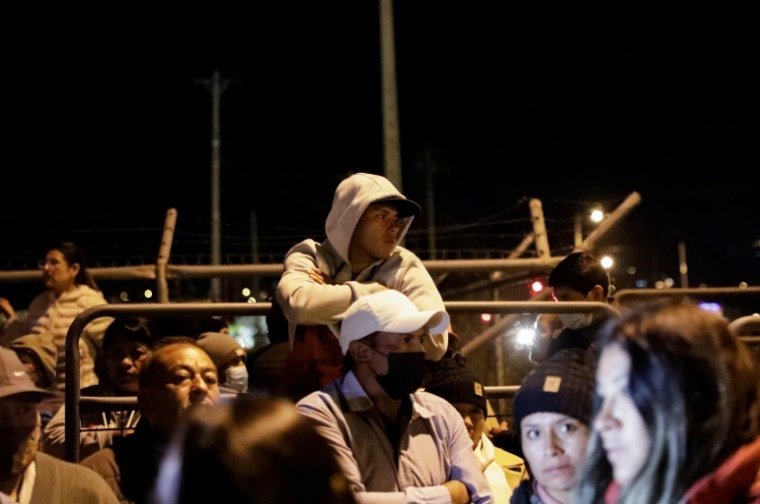
Family members wait anxiously outside the Cotopaxi No 1 prisonThe UN Subcommittee on Prevention of Torture visited Ecuador from 25 September to 1 October in response to the continuing violence, riots and deaths in Ecuador’s prisons. At least 15 prisoners have been killed and many wounded in the latest riot on 3 October. The Inter-American Commission on Human Rights has said Ecuador has no comprehensive policy for its prison system and that inmates endure crowded and dangerous conditions.
PARAGUAY
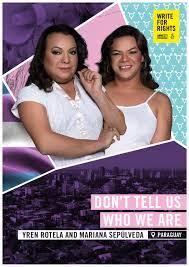 This year’s Write for Rights campaign features the case of Yren Rotela and Mariana Sepúlveda, who seek legal recognition of their identity as trans people so that they can exercise their rights.
This year’s Write for Rights campaign features the case of Yren Rotela and Mariana Sepúlveda, who seek legal recognition of their identity as trans people so that they can exercise their rights.
SURINAME
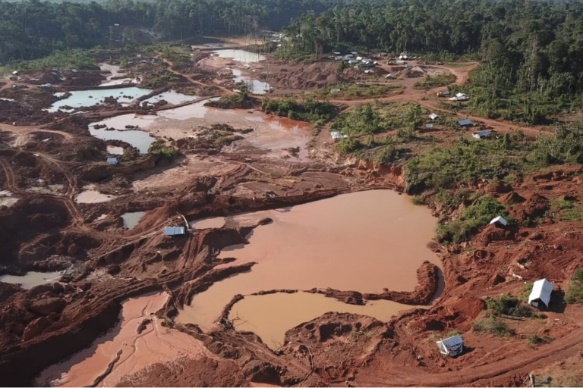 Two bills currently before Suriname’s parliament aim to recognise the rights of the country’s Indigenous inhabitants and tackle the forest-poisoning mercury pollution associated with gold mining. Suriname has repeatedly refused to recognise Indigenous rights, while gold mining is the backbone of the country’s economy.
Two bills currently before Suriname’s parliament aim to recognise the rights of the country’s Indigenous inhabitants and tackle the forest-poisoning mercury pollution associated with gold mining. Suriname has repeatedly refused to recognise Indigenous rights, while gold mining is the backbone of the country’s economy.
ARGENTINA

Thank you all who took part of our last Urgent Action in favour of Miranda Ruiz. Miranda is a health professional who guaranteed access to legal abortion in the city of Tartagal in Argentina’s province of Salta and was being investigated by the criminal prosecutor of that city for the crime of causing an abortion without consent, a crime that she did not commit. She was cleared of all charges last September.
South America Team – Richard Crosfield (Colombia and Brazil), Carla Torres (Chile and Argentina), and Graham Minter (rest of South America). And please don’t forget that you can follow us on our Facebook page and Twitter.